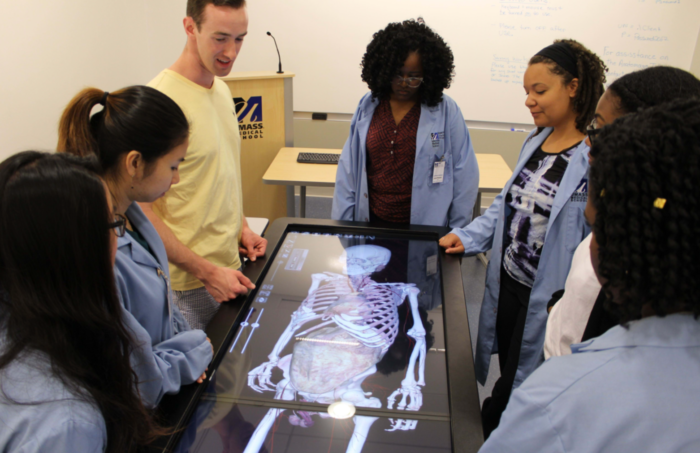
“We need to put [Black people like myself] in these positions, so that future generations can see that we made it, we can do these things.”
Earlier this year, Edward Livingston, the deputy editor of the Journal of the American Medical Association (JAMA), resigned after hosting a controversial podcast on which a participant disputed the existence of systemic racism.
As a medical professional, Livingston should have known that the health of minority communities continue to be disproportionately impacted by multiple social factors, as was highlighted by the impact of the pandemic on people of color. As JAMA Internal Medicine Editor Mitch Katz wrote in the time since the outcry, “as clinicians, we must understand how [structural racism has] a direct impact on the health outcomes of the patients and communities we serve.”
Still, such health disparities are best understood by physicians who have come from disadvantaged communities themselves. According to Paul Charles, the director of the Baccalaureate MD (BaccMD) Pathway Program, “they understand cultural barriers that may exist within their populations, and they’re able to relate to their patients a little bit better.”
BaccMD, instituted in 2013 by the provosts and deans at the five University of Massachusetts (UMass) schools, aims to increase diversity among the healthcare workforce by guiding first-generation college students and those at economic disadvantage or of underrepresented racial groups to become physicians.
“It was important that we had a medical school class who would eventually go on to practice medicine in the Commonwealth that can take care of the very diverse healthcare needs of our patient population,” Charles said in an interview.
Nationally, white physicians outnumber Black physicians by approximately 11 to one, primarily because minorities are not informed adequately or early enough about the steps necessary to pursue a medical degree. This arduous process includes taking rigorous prerequisite courses, gaining clinical and internship experience, and studying for the MCAT exam, among others, all during the few years of undergraduate study.
“A lot of students from diverse backgrounds aren’t aware of the commitment because they don’t have members in their families who have gone through that process,” explained Robert Layne, the manager of the Summer Enrichment Program for college students (including BaccMD students) and the High School Health Careers Program. “Unless we get to our students early enough to let them know [of the steps they need to take], they’re not academically prepared for medical school.”
Students apply to the BaccMD program at the end of the fall semester of sophomore year. If accepted, they partake in a four-week Summer Enrichment program to learn about medical school, attend webinar and book club sessions to build their communication and critical thinking skills, and participate in workshops to prepare for interviews. All throughout, they receive guidance on how to study for the MCAT exam and to strengthen their profile. By junior year, students can apply for provisional acceptance to UMass medical school, and through the feedback they receive about their application, they can gauge their next steps. During the summer of their junior year, students also undergo a clinical immersion experience at UMass medical center or a Worcestor community health center to explore different ways of practicing medicine.
Throughout their academic and professional careers, BaccMD students discover more about health disparities, which often motivates them to “go back to the communities that they grew up in, especially underserved communities, and create programs to help inform these communities of the importance of getting screened [for medical illnesses] and of having some autonomy over their health,” Charles said.
In practice, the program produces leaders who remain faithful to their background. So far, BaccMD has graduated three classes of students, all of whom have successfully matched up at competitive residency programs. Beyond improving the health of minorities at the individual and community levels, an expected increase in physician diversity is also inspiring young minorities to pursue this career path.
“It’s about creating a new narrative,” Layne said. “We need to put [Black people like myself] in these positions, so that future generations can see that we made it, we can do these things.” Charles concurred, adding, “understanding that there are people who come from backgrounds that you do, and who were able to achieve the goal of becoming a physician in any specialty, is important for young kids and teenagers.”
Alex Chou is a student at Boston Latin School, where he is the editor-in-chief of his school’s science magazine “Catapulta” and the Classics club’s publication “Paws Romana.” He has also served as a staff writer for the WriteBoston program Teens-In-Print.

